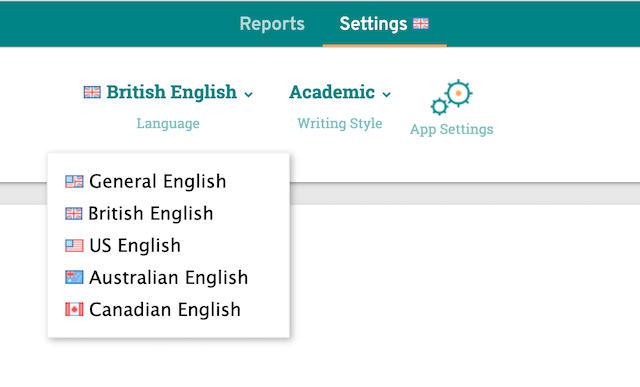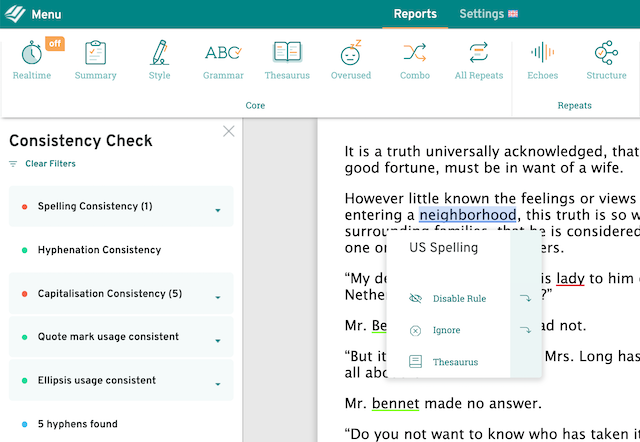
As someone who runs a business in the UK and has travelled extensively in the US, I can tell you from first-hand experience that there’s a world of difference between the way Americans and Britons do things.
And I’m not just talking about the fact that we drive on the ‘wrong’ side of the road (though, you know, obviously remember that if you decide to visit).
There’s the whole ‘s’ versus ‘z’ argument, the fact that we prefer spelling colour with a ‘u’ and grey with an ‘e’. And of course, let’s not forget about our penchant for the imperial system.
Grammar and measurements aside though, when it comes to marketing across the pond the differences are both vast and nuanced. We’re all speaking English, but that doesn’t mean it’s the same language.
Making yourself understood when writing for a UK audience requires some insider knowledge. We’re not talking secret handshakes or anything, but you need to know at least a little about the culture to avoid making a blatant faux pas.
Words don’t always mean the same thing
In the UK, pants refers to underwear, while in other parts of the world it means trousers. So telling a Brit that you like their pants will cause a few raised eyebrows. Be specific: jeans, chinos, etc.
Another fantastic example that illustrates just how worlds apart the US and the UK are, are our vastly different interpretations of the word quite. Take this amusing example from writing-skills.com:
Before an adjective, American quite means ‘very’, while British quite means ‘somewhat’. So, if the American tourist is quite tired, direct him to his bed. But if a Brit tells you a restaurant is quite good, you’d be wise to keep looking for somewhere better.
It can get tricky. A biscuit in the UK is a cookie in the US. Conversely, a biscuit in the US is a scone in the UK. The list goes on, but fortunately Bored Panda has put together an extensive infographic highlighting what things are called depending on where you are.
Understanding the culture
The British are a self-deprecating people and are naturally suspicious of boastfulness in others. You need not make out as if your product is complete garbage, but understatement is always preferable to overstatement.
Cultural specificity is important. Do Americans know who Robbie Williams is? Bruce Forsyth? Dara O’Briain? Probably not—so don’t assume Brits will automatically know who Howard Stern, Ryan Seacrest, Bill O’Reilly, Brad Paisley, or any other figure who doesn’t have a massive international following is.
If you’re going to indulge in sports metaphors, then stick to soccer, cricket or rugby. Nobody in the UK watches basketball, baseball or American football.
Cultural sensitivity is of equal import. If you call a Scotsman English, he will take umbrage (and may physically fight you). If you mistake Sunderland for Newcastle, or vice versa, a resident may well take offence: these two cities are geographically close, but have an intense football rivalry that is reflected in their identities.
Some points on punctuation
Brits are particular about where dialogue punctuation is placed as well. Essentially, if the punctuation mark (full stop, comma, etc.) refers to what’s being said inside the quotation marks then you place it inside.
However, if the punctuation mark forms part of the overall sentence and has nothing to do with the word or phrase in quotation marks, you place it outside. Here are two examples:
“It’s sweltering today,” said Jane.
The students had to read “One Flew Over the Cuckoo’s Nest”, as it was one of their set works for the year.
Check Americanized Spellings With ProWritingAid
So maybe you are in England and you want to put a “u” into colour, labour, and neighbourhood. That’s cool with us. Or maybe you are in America and you want to organize and analyze rather than organise and analyse like they do in the UK. No problem. What’s not OK, however, is if you are trying “to organise some neighborhood labour by analyzing the house colours”. You need to decide if you are going to use US or UK spelling and then stick with it.
If you're used to writing in American English, American spelling could sneak into your writing.
You can change the language settings in ProWritingAid to British English. This way, if any Americanisms slip in, ProWritingAid's Consistency check will help you root them out.

There are over 1,700 spelling differences between UK English and US English, with Canadian English sitting somewhere precariously between the two. The Consistency Check finds and highlights it when you have jumped from one continent to another within the same document.

Final Thoughts
Regional peculiarities aside, English and US English are essentially the same language. The fundamental principles of good writing apply no matter what audience you’re writing for.
